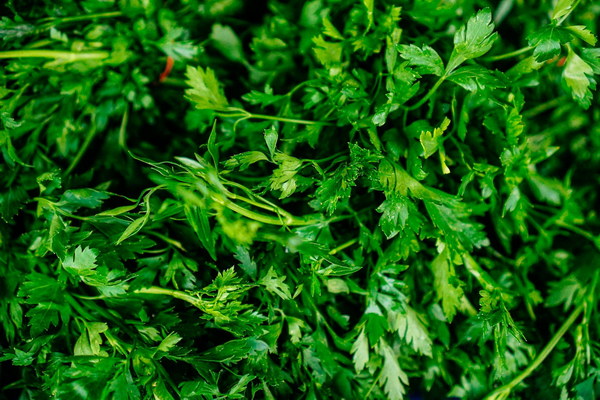Unlock the Power of Traditional Chinese Herbs A Comprehensive Guide to Herbal Nutrition
In the realm of holistic wellness, traditional Chinese medicine (TCM) has long been revered for its efficacy in promoting health and longevity. One of the most fascinating aspects of TCM is the use of herbal nutrition, which involves incorporating various herbs into one’s diet to address specific health concerns and enhance overall well-being. This article delves into the world of herbal nutrition, exploring the benefits, types of herbs, and how to incorporate them into your daily routine.
The Benefits of Herbal Nutrition
Herbal nutrition offers a plethora of benefits that can contribute to a healthier life. Some of the key advantages include:
1. Natural Remedies: Unlike synthetic medications, herbal remedies are derived from natural sources, making them a safer and more sustainable option for treating ailments.
2. Treats the Root Cause: TCM focuses on treating the root cause of illness, rather than just the symptoms. Herbal nutrition aims to address the underlying imbalances in the body, leading to long-term health benefits.
3. Boosts Immunity: Many Chinese herbs have immune-boosting properties, helping to protect the body against infections and diseases.
4. Promotes Digestive Health: Herbs such as ginger, turmeric, and fennel can improve digestion, alleviate bloating, and reduce the risk of gastrointestinal disorders.
5. Enhances Mental Clarity: Herbs like ginkgo biloba and ginseng have been shown to improve cognitive function and reduce stress levels.
Types of Chinese Herbs for Nutrition
There are numerous Chinese herbs that can be incorporated into one’s diet to enhance health and vitality. Here are some popular examples:
1. Ginseng: Known as the “king of herbs,” ginseng is believed to boost energy levels, enhance cognitive function, and support the immune system.
2. Ginger: This versatile herb is known for its anti-inflammatory, antiemetic, and antioxidant properties. It can help alleviate nausea, reduce muscle soreness, and improve digestion.

3. Turmeric: A powerful anti-inflammatory agent, turmeric is often used to treat joint pain, improve digestion, and support heart health.
4. Green Tea: Rich in antioxidants, green tea has been shown to boost metabolism, reduce the risk of chronic diseases, and promote weight loss.
5. Maca: This root herb is known for its energy-boosting and libido-enhancing properties. It is also believed to improve fertility and support overall well-being.
Incorporating Chinese Herbs into Your Diet
Now that you know the benefits and types of Chinese herbs, how can you incorporate them into your diet? Here are some suggestions:
1. Herbal Teas: Brew a cup of herbal tea using your favorite Chinese herbs. Some popular combinations include ginseng and green tea, or ginger and turmeric.
2. Herbal Infusions: Similar to herbal teas, herbal infusions involve steeping herbs in hot water for an extended period to extract their beneficial properties.
3. Herbal Spices: Add Chinese herbs as spices to your meals. For example, ginger can be added to stir-fries, soups, and marinades, while turmeric can be used in curries and rice dishes.
4. Herbal Supplements: If you prefer a more convenient option, you can take Chinese herbs in supplement form. Consult with a healthcare professional before starting any new supplement regimen.
In conclusion, herbal nutrition is a valuable component of traditional Chinese medicine. By incorporating Chinese herbs into your diet, you can reap the numerous health benefits and enjoy a more balanced and vibrant life. Remember to consult with a healthcare professional before starting any new herbal regimen to ensure safety and efficacy.









